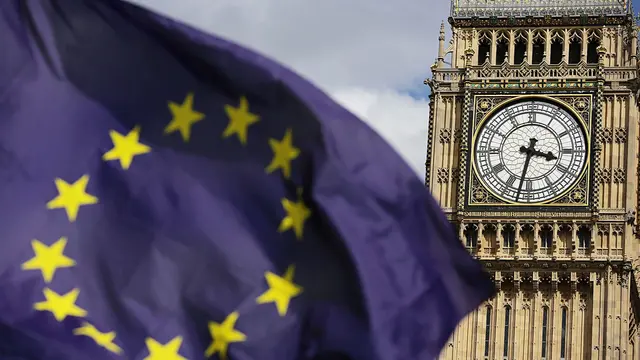Brexit Secretary David Davis launches a first round of
negotiations on Britain's withdrawal from the European Union on Monday
when he meets the EU's Michel Barnier for four days of talks between
their teams in Brussels.
A month after a first
meeting where the two exchanged gifts inspired by a shared passion for
hill-walking and spoke of the mountain of complexity they must climb,
the Frenchman will press Davis to agree to Britain covering substantial
British financial commitments and offer more details on other British
proposals.
With little more than a year to settle divorce terms
before Britain leaves, deal or no deal, on March 30, 2019, the 27 other
EU national leaders want British Prime Minister Theresa May to rally her
divided nation swiftly behind a clear, detailed plan that can minimize
economic and social disruption across Europe as its second biggest
economy cuts loose from the continent.
"We made a
good start last month, and this week we’ll be getting into the real
substance," Davis said in remarks prepared for delivery ahead of the
meeting.
"Protecting the rights of all our citizens
is the priority for me going into this round and I'm clear that it's
something we must make real progress on."
Negotiators will break into groups discussing four key areas of priorities before a planned news conference on Thursday.
Barnier,
who secured Davis' consent last month to the EU's broad structure for
talks, wants to hold the Englishman publicly to whatever else has been
agreed during the week, EU officials say.
Working
groups will focus on three areas: citizens' rights; the EU demand that
Britain pays some 60 billion euros (70 billion US dollars) to cover
ongoing EU budget commitments; and other loose ends, such as what
happens to British goods in EU shops on Brexit Day.
A fourth set of talks, run by Davis and Barnier's
deputies Oliver Robbins and Sabine Weyand, will focus on curbing
problems in Northern Ireland once a new EU land border separates the
British province from EU member Ireland to the south. Some of that will
have to wait for clarity on future trade relations.
One
key early advance that EU officials hope for this week is for Britain
to stop challenging the principle it will owe Brussels money – though
how much will have to be argued over and cannot be calculated until
Britain actually leaves.
Three more weeks of talks,
interspersed with internal EU sessions to coordinate the views of the 27
other governments, are scheduled, from late August until early
October.
 简体中文
简体中文

